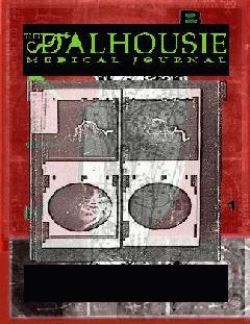Case Report: Mycobacterium avium Complex Infection as a Cause of Fever of Unknown Origin in HIV Disease
DOI:
https://doi.org/10.15273/dmj.Vol25No2.3728Abstract
Fever of unknown origin (FUO) is a common presenting complaint in patients with HIV disease. This article presents a case where Mycobacterium avium Complex (MAC) infection is identified as the cause of FUO in a patient with late stage HIV disease, and reviews the diagnostic and therapeutic strategy for effective management of this condition. MAC is an atypical mycobacterium which causes disseminated disease in up to 50% of HIV patients at some point during their illness. Studies have found it to be responsible for FUO in up to 21% of cases where a cause of fever could be identified. Blood cultures are a sensitive method of detecting MAC infection, and a single positive blood culture is diagnostic for disseminated MAC disease. Current laboratory techniques allow identification of MAC in the blood within 7 to 14 days of collection. The most effective treatment protocol for dissemi-nated MAC disease involves a three drug regimen of rifabutin, ethambutol and clarithromycin, that leads to rapid clearance of the organism from the blood and significant reduction in the severity of symptoms. Primary prophylaxis with clarithromycin has also been shown to reduce the incidence of MAC infection in HIV patients. Given that MAC has been found to have a significant impact on the mortality of HIV patients, it is important to maintain high diagnostic suspicion when evaluating patients with FUO so that treatment may begin promptly to improve patients‘ quality of life and prolong survival.Downloads
How to Cite
Gregor, L. (1997). Case Report: Mycobacterium avium Complex Infection as a Cause of Fever of Unknown Origin in HIV Disease. DALHOUSIE MEDICAL JOURNAL, 25(2). https://doi.org/10.15273/dmj.Vol25No2.3728
Issue
Section
Original Research
License
Authors who publish with this journal agree to the following terms:
- Authors retain copyright and grant the journal right of first publication with the work simultaneously licensed under a Creative Commons Attribution License that allows others to share the work with an acknowledgement of the work's authorship and initial publication in this journal.
- Authors are able to enter into separate, additional contractual arrangements for the non-exclusive distribution of the journal's published version of the work (e.g., post it to an institutional repository or publish it in a book), with an acknowledgement of its initial publication in this journal.
- Authors are permitted and encouraged to post their work online (e.g., in institutional repositories or on their website) prior to and during the submission process, as it can lead to productive exchanges, as well as earlier and greater citation of published work (See The Effect of Open Access).


